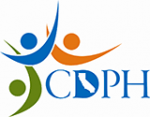Overview
Position Overview
The Illinois Department of Public Health is seeking a highly motivated individual to serve as a Methods and Procedures Career Associate II. Under direct supervision of the Perinatal Health Data Manager, Division of Health Data and Policy, oversees and performs day-to-day operations of the Pregnancy Risk Assessment and Monitoring System (PRAMS) using methods and procedures set forth by the Centers for Disease Control and Prevention (CDC) for the Division of Health Data and Policy. The ideal candidate for this position will be organized, detailed and possess the ability to be able to communicate effectively verbally, electronically and in writing with both internal and external stakeholders. The ideal candidate will also need to exercise initiative and resourcefulness in the development and completion of work projects and in appraising and evaluating problems of an operational and procedural natures.
Job Responsibilities
- Under direct supervision, oversees and performs day-to-day operations of the Pregnancy Risk Assessment Monitoring System (PRAMS) using methods and procedures set forth by the Centers for Disease Control and Prevention (CDC) . While maintaining security and confidentiality, oversees and conducts scheduled data collection activities consistent with methods and procedures established by the CDC. Serves as a lead telephone interviewer and respondent refusal conversion specialist. Interviews PRAMS survey candidates, including some evening and weekend interviewing. Trains staff on interviewing the PRAMS Integrated Data Collecton System (PIDS), human subjects requirements and data management activities. Provides constructive feedback to assure optimal performance and apprises the Perinatal Health Data Manager of training needs. Monitors monthly survey and annual response rates and endeavors to increase them to meet or exceed established CDC response thresholds. Opens and closes batches on a timely basis to ensure a smooth steady and timely work flow.
- Performs data management functions and oversees quality control of PRAMS data. Edits and corrects data files. Maintains required documentation in all phases of the operation. Performs validation and verification of survey data. Generates monthly batch reports for submission to CDC. Performs database back-up procedures. Maintains security and confidentiality of PRAMS data. Coordinates periodic installation of software updates when required by CDC, submits support tickets to report database issues. Assists PRAMS Data Manager to enter data from completed questionnaires into the database. Perform Internet and database searches to locate missing PRAMS participants’ addresses/phone numbers. Prepares mailing packages for PRAMS candidates to ensure a smooth, steady and timely work flow. Track disposition of monthly samples throughout the data collection period.
- Supports the Perinatal Health Data Manager in development of survey questionnaires, protocol development, and work flow coordination. Support the Perinatal Health Data Manager by implementing new and revised Institutional Review Board (IRB) approved documents needed for day-to- day operations. Develops professional competence and skills with CDC software, protocol, and Illinois adaptations of PRAMS methods and procedures.
- Maintains adequate inventory and supplies for data collections operations. Monitors preparation of survey and other mailing materials. Assures respondent rewards are tracked, reported and sent in a timely manner. Participates in staff meetings, CDC teleconferences and site visits, and other PRAMS community events.
- Performs other duties as required or assigned, which are reasonably within the scope of the duties enumerated above.
About Illinois Department Public Health
In Illinois, if you have eaten at a restaurant ... required hospital or nursing home care ... vacationed at a campground or swam at a public beach or pool ... drank a glass of milk ... got married or divorced ... had a baby, the Illinois Department of Public Health (IDPH) has touched your life in some important way.
Assuring the quality of our food, setting the standards for hospital and nursing home care, checking the safety of recreation areas, overseeing the inspection of milk producing farms and processing plants, maintaining the state's vital records and screening newborns for genetic diseases are just some of the duties of IDPH.
In fact, IDPH has 200 different programs that benefit each state resident and visitor, although its daily activities of maintaining the public's health are rarely noticed unless a breakdown in the system occurs. With the assistance of local public health agencies, these essential programs and services make up Illinois' public health system, a system that forms a frontline defense against disease through preventive measures and education. Public health has provided the foundation for remarkable gains in saving lives and reducing suffering. Today, life expectancy is 80 years for women and 74 years for men compared with fewer than 50 years at the at the beginning of the 20th century.
In the past, IDPH directed state efforts to control smallpox, cholera and typhoid, virtually eliminated polio, reduced dental decay through fluoridation of community water supplies, and corrected sanitary conditions that threatened water and food supplies.
Today, IDPH has programs to deal with persistent problems that require continued vigilance – infectious diseases, such as AIDS (acquired immunodeficiency syndrome), HIV (human immunodeficiency virus), SARS (severe acute respiratory syndrome) and meningococcal disease; foodborne and communicable diseases, such as E. coli 0157: H7, monkeypox, salmonella and West Nile virus; vaccine preventable diseases; lead poisoning; lack of health care in rural areas; health disparities among racial groups, breast, cervical and prostate cancer; Alzheimer's disease; and other health threats -- sexually transmitted diseases, tobacco use, violence, and other conditions associated with high-risk behaviors. In addition, IDPH has been charged with handling the state's response to the COVID-19 pandemic and the threat of bioterrorism.
IDPH, which is one of the state's oldest agencies, was first organized in 1877 with a staff of three and a two-year budget of $5,000. IDPH, now has an annual budget of $2.9 billion in state and federal funds, headquarters in Springfield and Chicago, seven regional offices located around the state, three laboratories, and 1,200 employees.
IDPH is organized into 12 offices, each of which addresses a distinct area of public health. Each office operates and supports numerous ongoing programs and is prepared to respond to extraordinary situations as they arise.



